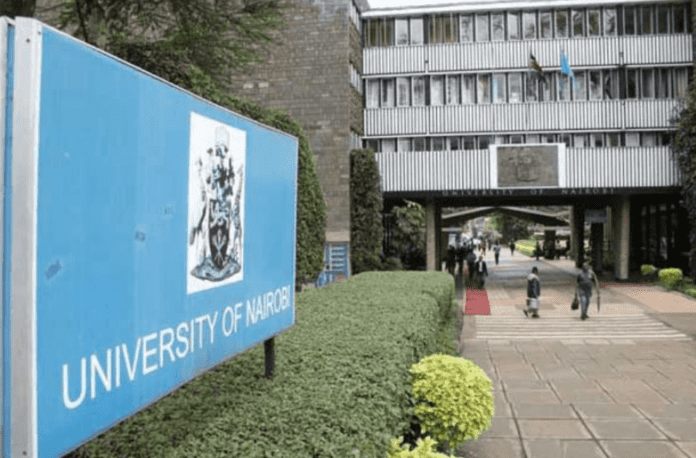The University of Nairobi (UoN) has initiated a formal review of student hostel accommodation fees following sustained pressure from students and intervention by the Senate.
In an internal memo dated July 30, UoN Director of Corporate Affairs John Orindi confirmed that the university’s top management had adopted a report proposing revisions to hostel charges during a meeting held a day earlier.
“The recommendations are being processed for final approval by various governance organs of the University,” the memo read in part.
Students have been assured that the final decision will be communicated by Wednesday, August 6.
The memo, which was also shared with key officials including the Vice Chancellor, Deputy Vice Chancellors, and Dean of Students, urged students to be patient and noted that any decision must comply with university policy.
“We implore all students to understand that university decisions are guided by various policies and regulations which must be adhered to,” Orindi stated.
Protests Over High Hostel Charges
The decision follows a series of protests by students who have decried what they describe as unaffordable and exploitative accommodation fees.
On July 17, the University of Nairobi Students Association (UNSA) threatened to disrupt upcoming student admissions unless the hostel fee was reviewed.
The student body claimed that accommodation charges had increased drastically—from KSh6,000 in 2021 to as high as KSh43,000 in 2025—despite poor living conditions in many hostels.
In September 2024, students took to the streets to protest the jump in semester accommodation fees from KSh3,000 to KSh21,000, arguing that the hike was unjustified.
Senate and Ministry Step In
The matter was escalated to the Senate on July 24, when Nairobi Senator Edwin Sifuna raised alarm over the rising cost of student housing.
“Students are being forced into slums because they cannot afford the new hostel rates,” Sifuna said, urging the Senate Education Committee to investigate.
Nandi Senator Samson Cherargei echoed Sifuna’s concerns and proposed that student housing be included in the government’s Affordable Housing Programme. He also pointed to the deplorable conditions in some hostels, citing bedbug infestations.
“Our comrades are being affected by bedbugs, and this happens at the hub of serious knowledge engagement,” he said.
On July 21, UoN students marched to the Ministry of Education at Jogoo House demanding fee reductions. The Ministry responded the following day, with Higher Education Principal Secretary Beatrice Inyangala expressing readiness to mediate.
“We want to encourage the students to come to the table. Our experience has been that when we bring student leaders to the table, we always resolve these issues very amicably,” she said.
Awaiting a Final Decision
The outcome of the review process is expected to be a pivotal moment in the standoff between students and the institution. If approved, it would mark the first formal fee revision since the protests began.
In the meantime, the university has urged students to remain calm and await official communication on the revised accommodation rates.







